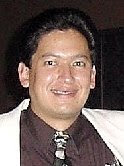
Photo above is of Sandra LeDrew
(by Shanken News Daily) In a surprise move, Treasury Wine Estates has announced the appointment of Diageo executive Sandra LeDrew as managing director, Americas.
LeDrew is slated to begin her new role in early February. She will be based in Treasury’s Napa office and report to CEO David Dearie, who’s based in Melbourne, Australia. LeDrew’s responsibilities will include distributor and customer relations as well as national accounts covering the U.S. Canada, Mexico and South America. At the Napa office, she will work alongside Stephen Brauer, Treasury’s managing director, Beringer.
LeDrew, a long-serving Diageo executive, became president at Diageo Chateau & Estate Wines (DC&E) in early 2009. Last September, Diageo tapped her to become president of Catalyst, a new business unit that’s focused on the company’s niche spirits brands. “After more than 20 years with Diageo, this was an extremely difficult decision,” LeDrew said. “But my passion has always been wine.”
“Sandra and I have worked together for many years and I have valued her experience, counsel and the significant contributions she has made to the business. Personally and professionally, I am very disappointed to see her leave and I know she will be missed,” said Larry Schwartz, president, Diageo USA. “I know this next chapter will be exciting for her. On behalf of everyone at Diageo, I wish Sandra all the best in her new venture.”
The Treasury Wine Estates portfolio includes Beringer, Lindemans, Penfolds, Rosemount, Wolf Blass, Greg Norman Estates, Wynns Coonawara, Little Penguin, Etude, Souverain, Chateau St. Jean, Castello di Gabbiano, Black Opal, Meridian, Colores del Sol, Emma Pearl and Sledgehammer, among others.
*Meanwhile, Diageo has named Stephen Rust as president of the Catalyst division, replacing LeDrew. Rust joined Diageo in 2005 as senior vice president for commercial strategy. He previously was executive vice president, national sales at Schieffelin & Somerset. Rust began his career at Paddington Corp. in 1988 as an on-premise representative. At Diageo, Rust has held a number of key roles including general manager southwest, senior vice president Diageo Reserve Brands Group and, most recently, senior vice president of joint ventures and strategic relationships. In that role, Rust manages ties with Sean Combs on Cîroc, the Nolet Family on Ketel One, Raphael Yacoby for Nuvo and Diageo’s partnership on Zacapa rum. He’s also in charge of Diageo’s non-alcoholic business including Stirrings, Smirnoff Bloody Mary and Jose Cuervo Margarita Mix.
The Catalyst portfolio includes Tanqueray Sterling, Pimms, Moon Mountain, Rökk, Myers’s, Rumple Minz, Goldschläger, Jeremiah Weed, Emmets, Parrot Bay, Stirrings Liqueurs, Old Parr, Lagavulin, Glenkinchie, Cragganmore, Dalwhinnie, Caol Ila, Clynelish, The Singleton, Dimple, Oban, Talisker, George Dickel, Black Haus, Romana Sambuca, Yukon Jack, Zwack and Ursus. Catalyst currently totals 28 spirits brands with annual revenues of around $250 million. Diageo’s goal is to double Catalyst’s volume and sales revenue to 5.4 million cases and $500 million in the next three years.
Click
HERE for the complete story. Please visit us at
The Rum Shop for all your rum-related needs, including purchasing rum on-line, rum recipes, rum tasting notes, rum event information and rum consulting services. "Got Rum?" Magazine is back in circulation, get your free copy
HERE.















